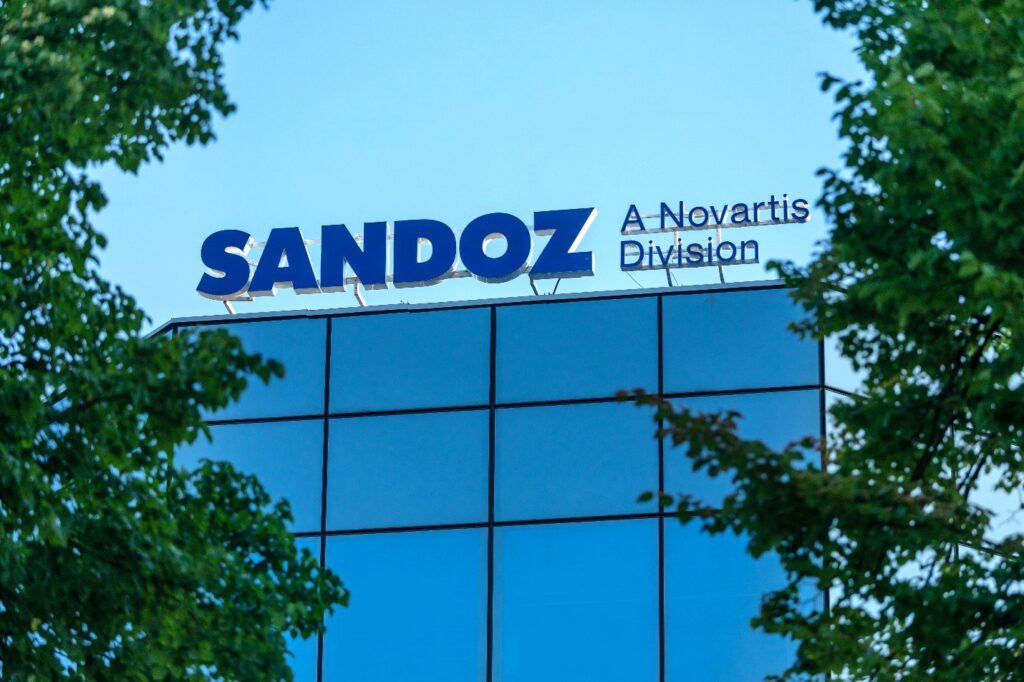The US Food and Drug Administration (FDA) has granted approval to two of Sandoz’s biosimilars to Amgen’s blockbuster bone drugs Prolia (denosumab) and Xgeva (denosumab).
While Prolia is the first biologic approved to treat osteoporosis, Xgeva is used in the treatment of bone problems due to multiple myeloma as well as bone metastases from solid tumors.
The biosimilar injections, Jubbonti (denosumab-bddz) and Wyost (denosumab-bddz), are approved as interchangeable biosimilars to Prolia and Xgeva, respectively. This means they can be substituted for the reference product at a pharmacy without the need for instruction from a prescriber.
Despite the approvals, the market launches of Jubbonti and Wyost are uncertain due to ongoing patent litigation between Sandoz and Amgen.
Amgen has made significant attempts to thwart Prolia and Xgeva biosimilar competition, filing a lawsuit in a New Jersey federal court accusing Sandoz of more than 20 Prolia and Xgeva patent infringements. Amgen also claimed that Sandoz failed to provide information about its biosimilar manufacturing process as required by law. The company also complained that the FDA would make an approval decision on the biosimilar before patent expirations.
According to Amgen’s last earnings report, Prolia sales increased 12 percent last year to more than $4 billion, and Xgeva’s jumped five percent from last year to $2.1 billion.
Denosumab is a RANKL (receptor activator of nuclear factor kappa beta ligand) monoclonal antibody that blocks the ability of RANKL to bind to its receptor RANK. Inhibition of the RANKL/RANK interaction helps prevent osteoclasts from breaking down bone in the body.
Jubbonti is the first interchangeable biosimilar approved to treat osteoporosis and increase bone mass. Wyost is the first interchangeable biosimilar approved to prevent bone-related complications of cancer, including fracture, need for radiation to the bone or spinal cord compression, according to the FDA. Jubbonti and Wyost are also the first interchangeable biosimilars for a RANKL inhibitor.
Related: Amgen’s Prolia Gets FDA Boxed Warning for Risk of Severe Hypocalcemia
Osteoporosis is a condition characterized by weakened bones, making them fragile and more prone to fractures. It occurs when the formation of new bone doesn’t keep up with the loss of old bone. The disease often progresses without symptoms until a fracture happens, typically in the wrist, hip or spine. Risk factors include aging, hormonal changes, low body weight, low calcium intake and use of certain medications. Prevention and treatment include a healthy diet rich in calcium and vitamin D, regular exercise and medications that can help strengthen bones.
Osteoporosis is a major cause of fractures in postmenopausal women and in older men. According to the Centers for Disease Control and Prevention (CDC), more than 10 million adults 50 years of age and older have osteoporosis. Moreover, 50 percent of all women over the age of 50 will experience an osteoporotic fracture in their lifetime.
Bone is the third most frequent site for metastatic tumors and almost all types of cancer can spread to the bone, especially breast and prostate, according to the American Cancer Society.
XTALKS WEBINAR: AI and Robotics in Cell Line Development: Enhancing Efficiency and Accuracy
Live and On-Demand: Thursday, April 4, 2024, at 11am EDT (4pm BST/UK)
Register for this free webinar to explore how AI and robotics are being used in cell line development with Cell Metric X.
According to the FDA, Jubbonti is approved for the same indications as Prolia, which include individuals at high risk for fracture including postmenopausal women with osteoporosis and men with osteoporosis. It is also indicated for individuals at high risk of fracture after receiving treatments such as glucocorticoids, androgen deprivation therapy for prostate cancer and adjuvant aromatase inhibitor therapy for breast cancer.
Wyost is approved for the same indications as Xgeva, which include prevention of skeletal-related events (SREs) in patients with multiple myeloma and in patients with bone metastases from solid tumors; treatment of adults and skeletally mature adolescents with giant cell tumor of bone that is unresectable or resection with risk of severe morbidity; and treatment of hypercalcemia of malignancy refractory to bisphosphonate therapy.
The approval of the interchangeable biosimilars was based on a review of scientific evidence that showed the products are highly similar to Prolia and Xgeva, with no clinically meaningful differences between the two product pairs, said the FDA in the approval announcement. This evidence included comparisons of the products using an extensive array of physicochemical tests and biological assays to confirm the biosimilars’ similarity in efficacy, safety and immune response to the original drugs, the FDA explained.
“Sandoz has achieved the first FDA approval for biosimilars to denosumab, a medicine that can address primary and secondary bone loss, such as osteoporosis, as well as cancer-related skeletal events, which are disease states that can profoundly reduce quality of life for patients. I am proud that Sandoz continues to pioneer access to these life-changing medicines for the patients who need them most,” said Keren Haruvi, president, Sandoz North America, in a statement from the company.
In January this year, the FDA added a boxed warning for the increased risk of severe hypocalcemia (low blood calcium levels) in patients with advanced chronic kidney disease who are taking Prolia. Patients on dialysis or with mineral and bone disorders are at the highest risk for the adverse event. Jubbonti has the same boxed warning in its prescribing information.
Given this, Jubbonti’s approval is accompanied by the approval of Sandoz’s Jubbonti Evaluation and Mitigation Strategy (REMS) program that informs prescribers and patients about the risk of severe hypocalcemia.
If you want your company to be featured on Xtalks.com, please email [email protected].












Join or login to leave a comment
JOIN LOGIN